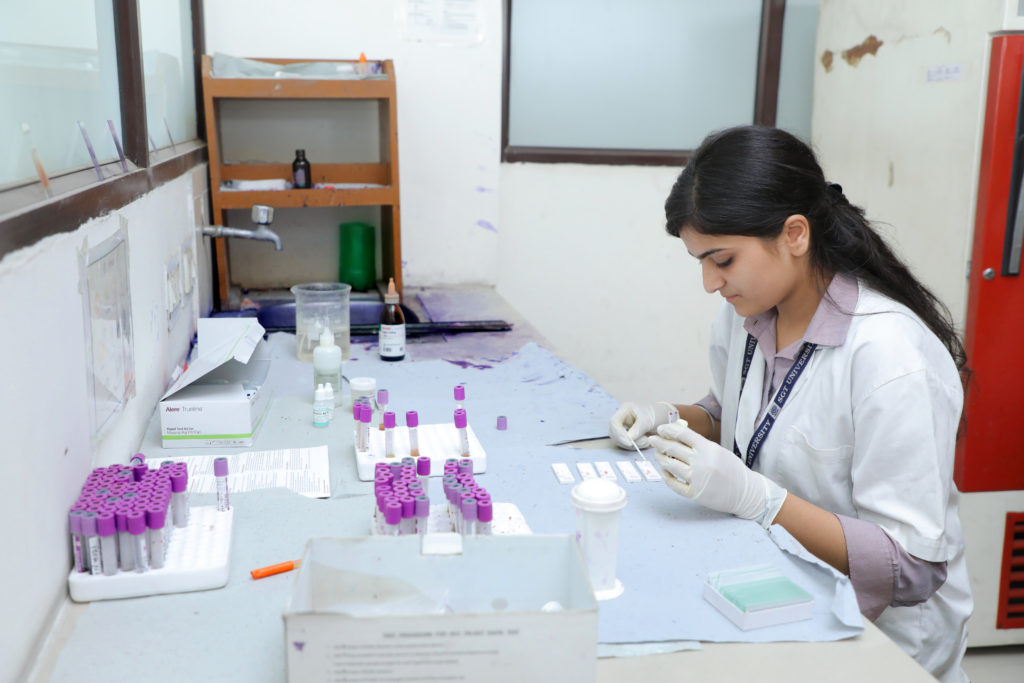Programme of Medical Laboratory Technology

Medical Laboratory Technology is concerned with the diagnosis, treatment, and prevention of diseases through the use of clinical laboratory tests. The lab technician work behind the scenes as a highly-skilled specialist who performs tests that detect the absence or presence of disease. The result of the tests performed by these technicians is passed on to physicians so that they can treat patients and manage disease according to the findings. This program also equips candidates with the knowledge and skills required to handle advanced lab equipment.
The duties of a medical laboratory technician can be general in nature or specialized in areas such as histopathology, microbiology, and clinical biochemistry. Both specialized and general roles are important for the medical field as the results of their testing help physicians to accurately diagnose and treat cancer, heart disease, diabetes, and other serious health conditions. These tests can also be used for the prevention and management of the disease.
The steady population growth and with advancements in technology, the quality of medical care has vastly improved across the world, creating an urgent need for people who can handle highly sophisticated medical technology. This clearly indicates that the job market for medical laboratory technicians is expected to remain strong.
The SGT University had realized their potential and established the Department of Medical Laboratory Technology within the Faculty of Allied Health Sciences. Currently, the Department of Medical Laboratory Technology is offering B.Sc in Medical Laboratory Technology (3 years) and M.Sc in Medical Laboratory Technology (2 years) in semester system with three specializations (Biochemistry, Molecular Diagnostics and Microbiology).
At SGT we have a well-qualified, committed, and motivated faculty. All the departments have well-equipped laboratories and we have our own hospital where students are trained through departmental postings in state-of-the-art laboratories of clinical biochemistry, clinical pathology, and clinical microbiology and so they can get the proper exposure required for enhancing their practical skills.
